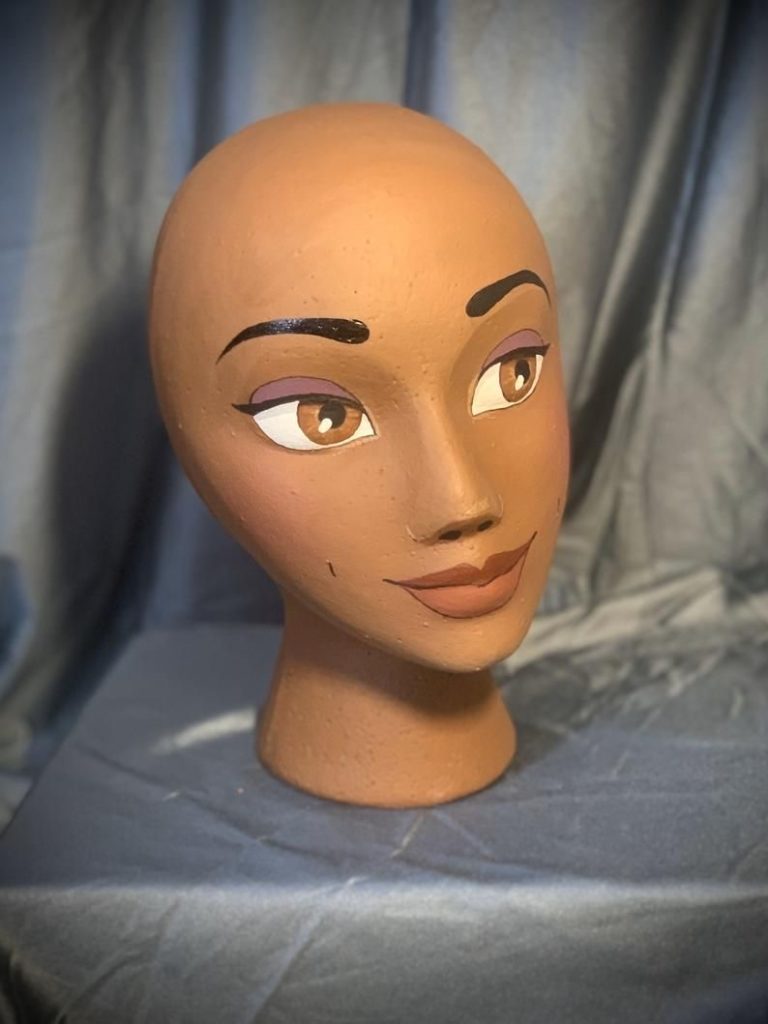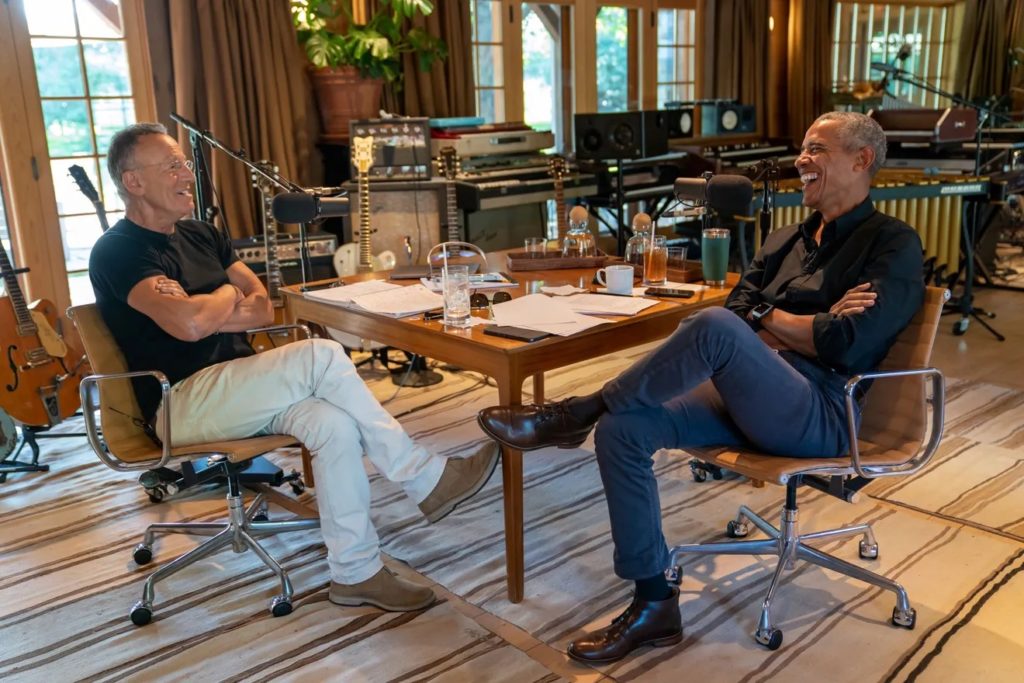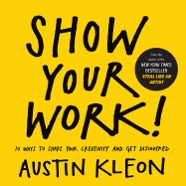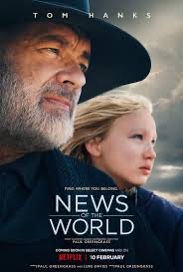Mannequin Monday – “A lot of pain in that invisibility”
“If you weren’t so quiet, you wouldn’t have searched so desperately for a way to speak.” Springsteen and Obama on the Renegade podcast.
A ten-year old girl in post Civil war Texas learns English to find her voice.
And a chapter from my book, A Twin Long Gone. Trying to re-create a voice.
What I’m Reading
I started this week listening to the first two episodes of the podcast Renegade on Spotify. Bruce Springsteen and Barack Obama engage in a long conversation about music, America, their individual backgrounds.
Early in the first episode Obama mentions the shy quality he sees in Springsteen. That sparks a long comment from Springsteen about the shyness prevalent in so many entertainers and performers.
“If you weren’t so quiet,” Springsteen says, ” you wouldn’t have searched so desperately for a way to speak. The reason you desperately pursue your work and your language and your voice is because you haven’t had one. You realize that, and you feel the pain of being somewhat voiceless.”
Springsteen goes on: “The performance becomes the mechanism from which you express the entirety of your life. Previous to that I was pretty invisible. A lot of pain in that invisibility.”
It’s all about finding your voice, about desperately pursuing that voice. A matter of survival. Speak or die invisible.
Author and artist Austin Kleon says in his book Show Your Work the only way to find your voice is to use it. He goes so far as to say, if you’re not on the Internet, you don’t exist. Strong words, but they echo Springsteen. You express yourself because you feel the pain of being somewhat invisible.
And on the subject of voice, I segue to the book I finished this week, News of the World. There are delightful paragraphs where a ten-year old girl, captured by the Kiowa when she was only six and now on a journey to be returned to her relatives, learns to speak English. She finds her voice by repeating words over and over as she and her guardian travel.
The girl is called Johanna. Her travel guardian is Captain Kidd. Set in the years following the Civil War, the story follows the two as they travel south in a wagon across Texas to San Antonio.
“Cho-henna stomp choo! She lifted her bare foot and pointed to it and then stamped it on the floorboards.
Not shoe, foot, he said. He reached back and found one of her shoes. He held it up; a black and confining laced thing with a blunt toe and a one-inch heel. The laces were missing. She had used them for something. Shoe, he said. He pointed to her foot. Foot!
Fery well, Cho-henna stomp foot! Cho-henna weff hont! She waved her hand. Kep-dun stand up! He stood up. Kep-dun sit don! He sat down. Kep-dun clepp honts! He wearily clapped his hands. Kep-dun laff! No, he said. Ah ah ah, Kep-dun, pliss.
All right. He managed to raise a false and hearty laugh. Ha! Ha! Ha! Now, that’s enough for today.”
A child learns language through repetition. Are you a writer? A musician? A photographer? A filmmaker? You find your voice by using it.
What I’m Writing
Here’s a chapter from a book I wrote several years ago. The main character, Cabe Wray, has been searching fruitlessly for his missing twin sister Gail for years. A friend suggests he create a video to post to the Internet describing Gail. The hope is the video will spark someone’s memory and offer a clue to her whereabouts. Cabe hires Turo Fonseca to direct the video. Kelsey Graf is his production assistant for the project.
Here Turo and Kelsey interview Cabe on camera about his sister, as they try to re-create Gail’s persona and voice from years back.
Chapter from A Twin Long Gone
Turo turned to Kelsey. “Why don’t you ask Cabe a few questions not related to the search. It will give both of you a chance to warm up and get used to one another before I start recording.”
“Okay,” Kelsey said. “Cabe, let’s see… what music do you have on your phone? Any interesting playlists?”
Cabe took his phone out of his pants pocket. Thumbed through the music.
“Here’s a playlist I listen to often. I call it Ballads.” He offered the phone to Kelsey.
“Let me interrupt for a moment,” Turo said. “Cabe, when you speak, keep your head up and facing out so the mic will pick you up.”
Kelsey reviewed the playlist. “Okay… The Little Willies, ‘For the Good Times;’ Madeleine Peyroux, ‘Got You on my Mind;’ Patty Griffin, ‘Moon River;’ Pink Martini, ‘Tea for Two;’ Jeff Buckley, ‘Hallelujah.’ Not bad, Cabe. Anything more upbeat?”
“Check out the jazz mixes. Ahmad Jamal, Allen Toussaint, Ben Webster, Oscar Peterson.”
“You’re warming up. Do you like rock?”
“Los Lobos, ‘The Neighborhood;’ Eric Clapton, ‘Unplugged.’ All of Springsteen.
She handed the phone back to Cabe. “What’s your go-to fun album?”
“’The ABC&D of Boogie Woogie.”
“I don’t know that one.”
“It was recorded live in the Duc Des Lombards jazz club in Paris in 2010. Piano, bass and drums. Charlie Watts from the Rolling Stones on drums. I’ll play their version of ‘Route 66’ for you later. It’s fantastic.”
“Okay, later,” she said.
“I wish I could have been there for the performance,” Cabe said. “I love live music.”
“This is random,” Kelsey said, “but what was your first concert?”
“The Kingston Trio, at the Forest Hills Tennis Stadium.”
Turo interrupted. “I’m ready for you now.”
Kelsey handed the phone back to Cabe.
Turo looked up from the camera’s viewfinder. “Okay, guys, here’s what I’m going for. Kelsey, I want you to ask Cabe whatever questions come to your mind about Gail. Don’t worry about whether they’re good or not. Just jump in and keep going. I’ll record the entire conversation.”
What do you want from me?
“What do you want from me?” Cabe asked.
“Honest answers.”
“This will be too long, won’t it?”
“I’ll edit it down, man. No worries.”
Turo grabbed the makeup kit and applied a touch to Cabe’s forehead. Kelsey pushed his hand away. “I’m fine.”
“Ready?”
Both nodded. “Skip introductions. We can edit that in later.”
Turo put on the headphones, hit Record, and pointed to Kelsey.
Kelsey smiled to the camera, paused a second, and spoke. “Cabe, I want to ask you about your twin sister Gail.”
Cabe tried to look serious. “Sure.”
“Was Gail your only sibling?”
“Yes, just the two of us.”
“Describe her. Start by telling me about her personal style. What did she like to wear?”
“In a casual setting, jeans and shirts. Sandals in the summer.”
“That was college, right?”
“Yeah. For high school we wore uniforms every day.”
“What did you wear for relaxing?”
“Mostly chinos and button-down shirts. I was pretty conservative in my dressing.”
“Was?” She nodded to his yellow polo shirt.
Cabe shrugged. “Okay, still am.”
“Tell me more.”
“After a year at college, Gail started wearing flower print dresses, faded jeans, leather vests.”
“Like a hippy?”
“More like a protester. She began to adopt strong views about what was going on back then.”
“The Vietnam War protests?”
“Yeah, but more than that. She was becoming anti-government, anti-corporation. We argued a lot about that.”
Kelsey took a sip of coffee. “Tell us about that.”
Cabe looked to the camera, then back to Kelsey. “In the late sixties and early seventies, every conversation ended up in an argument.”
“Between the young people and the older generation?”
“Much more. Blue collar against white collar, student against school administration, liberal against conservative.”
“Did you and Kelsey always fight?”
“Rarely, until sophomore year of college. Then it got ugly pretty fast. She was anti-war, and wanted me to protest with her.”
“And…?”
“I wanted no part of any protests.”
Kelsey’s eyes bored into his. “You were afraid?”
Cabe pressed his back into the chair. “Look, Gail wasn’t facing the draft. I was safe from it as long as I stayed in college. I didn’t want to get drafted.”
“Afraid to call attention to yourself?”
Cabe shifted in his chair. “Yeah, maybe. I didn’t want the local draft board noticing me. But I wasn’t anti-war. I knew most of the guys who were drafted didn’t want to fight…” He sighed. “We lost a guy from our neighborhood who died in Nam in a mortar blast.”
“That didn’t bother Gail?”
“It bothered her in a different way. She thought if everyone refused to go, the war would end.”
Kelsey leaned in. “So you argued?”
Cabe sighed. “We did.”
“Did it bother your parents?”
“Yes. My dad, especially. He went nuts over her attitudes. What bothered my mom was seeing us fight.”
“What kind of political views do you think Gail would embrace today?”
“Probably much the same. I could see her protesting all the wars we’ve engaged in since Vietnam.”
“Could she protest and still remain under the radar?”
“I never thought of that before… She probably would not have taken on leadership roles in protest organizations.”
“What about environmental issues?”
“She might have become active with that. In a backseat role.”
“Why a backseat role?”
“She was always fun-loving, always ready for a party or an adventure with friends. I don’t think she’d step out front. Especially if she wanted to remain hidden.”
“Interesting. I’d like to come back to that. But first, tell me about her friends.”
“Well, up until college we had the same friends. A crowd of us guys and girls moved together through elementary and high school. For the first two years of college, she and I both commuted to classes. She went to art school in the city. I attended a local college nearer to home.”
“Gail was creative?”
“Yeah, I’d say so. She liked to sketch and paint. Fashion design had appeal, but not enough for her to pursue it. Later she got interested in theater.”
Kelsey shifted in her chair, looked into Cabe’s eyes. “Okay, she got into theater?”
“Near the end of freshman year, she started attending plays at school and in the Village. She tried to drag me to a few, too.”
“Dragged? You weren’t into it?”
“Not then. I had attended a few high school productions. Most of them were pretty lame, and even when they were well done, I couldn’t get into it.”
“Sounds like something changed you.”
Cabe nodded. Smiled. “In junior year she got two tickets for Jacques Brel is Alive and Well and Living in Paris at the Village Gate.”
“Tell us about that.”
“It was an extraordinary experience for both of us.”
so raw and yet so sensitive
Kelsey leaned toward Cabe. “Why?”
“I’ve never heard anything so raw and yet so sensitive. Four performers, two men, two women, whose singing brought the power of Brel’s lyrics and music to life. Elly Stone especially. A wonderful voice.
“The Village Gate was a basement nightclub, large for that kind of venue. The stage took up one corner of the large room, a square platform with one angle thrusting out into the audience.”
Cabe slid his chair closer to the table.
“We sat at long, narrow tables. What affected me was the intimacy of the setting. The stage was only three or four feet off the floor. No one was far away from the performers. You felt like they were singing directly to you.”
Kelsey said, “I’m familiar with the music, but I’ve never seen it performed.”
“Don’t miss it if you get the chance. Gail was in tears through most of the performance. So were her friends.”
“Her friends?”
“I forgot to mention… two of her girl friends joined us that night. The same two girls she roomed with.”
“Talk more about Gail and theater.”
Cabe took a long breath. “When I started searching for Gail, I began to attend theater performances, thinking she may have become an actor. Mostly small and regional theater, figuring she wasn’t experienced enough to be on a large stage anywhere. And I’ve kept going with that. I have boxes full of theater programs somewhere in the garage.”
“No luck with that?”
“Not even a hint. I now avoid any play that has no role for an older woman. And,” Cabe laughed, “in the beginning I always left at intermission, thinking she would have appeared on stage by then. Now I’ve grown to love theater and stay for the whole show.”
“Back to her music tastes. I assume she listened to rock.”
“Sure, Jimi Hendrix. The Moody Blues. Folk music, too. She liked Pete Seeger, Arlo Guthrie.”
“Surely her tastes would have evolved since then.”
“Probably so, but she would gravitate towards fun music. It could have a serious message, but it had to be something she could sing or dance to.”
Turo signaled for Kelsey to wrap up the conversation.
They paused.
“Okay, cut. That was excellent.” He turned off the light. “Let’s take a short break while I change the memory card, and we’ll pick it up again.”
“Good questions, Kelsey,” Cabe said. “You’re sparking memories. I hope some of it may be helpful.”
“You’re warming up to this nicely,” Turo said.
“I want to get to know Gail more,” Kelsey said. “She’s intriguing.”
“Do you really think so? To me she was my sister. I mean, of course I loved her, but I never thought of her as intriguing.”
“There’s something there,” Kelsey said. “I can’t put my finger on it yet.”
***
The book is available on Amazon Kindle: A Twin Long Gone.




Leave a Reply